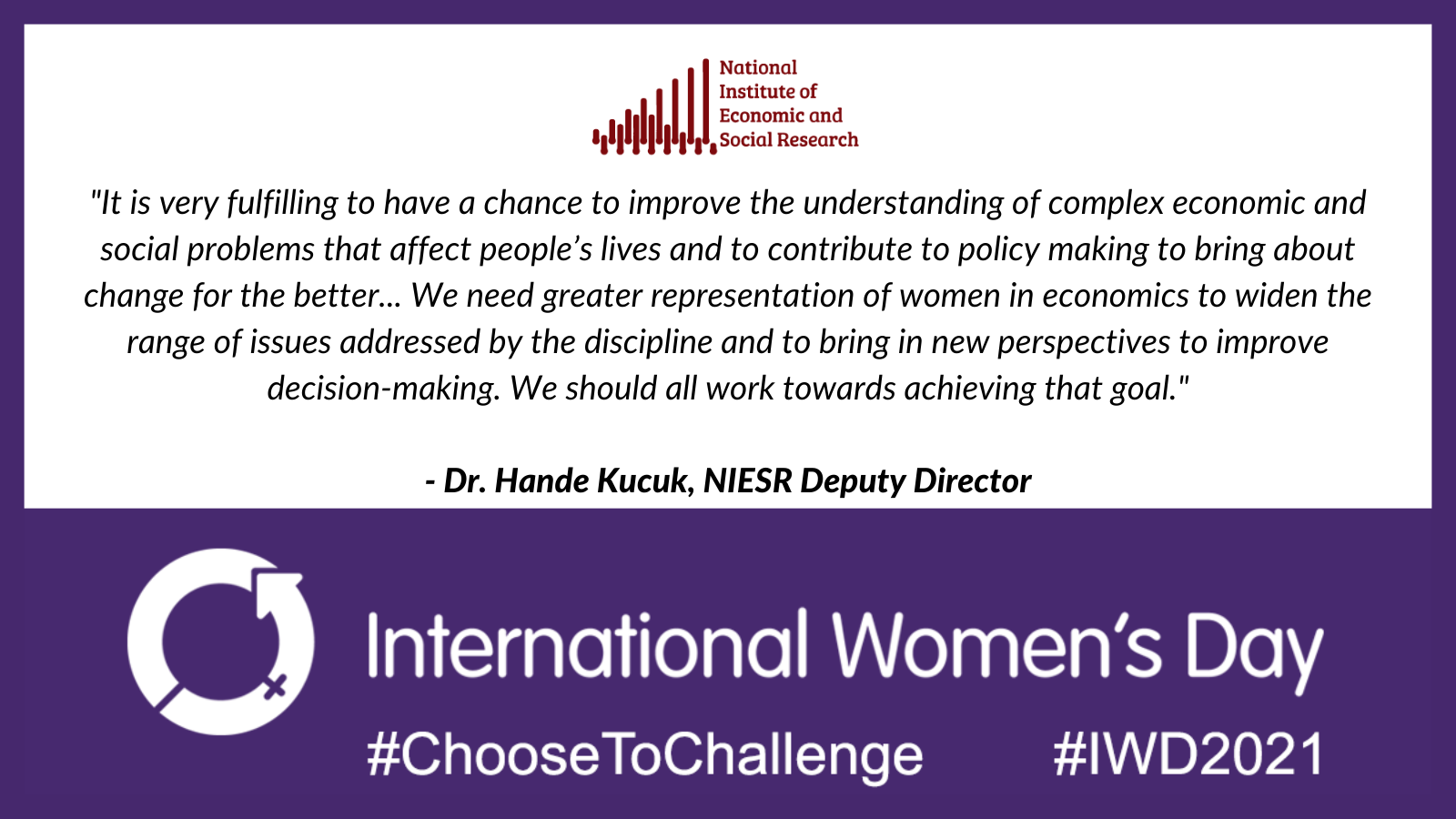International Women’s Day 2021 at NIESR: Dr Hande Kucuk
The theme for International Women’s Day (IWD) 2021 is #ChooseToChallenge, asking us to “Celebrate women’s achievement. Raise awareness against bias. Take action for equality.”.
To celebrate IWD at the National Institute of Economic and Social Research (NIESR), we are publishing a series of Q&A blogs written by women at NIESR to explore various topics to celebrate their achievements, including the challenges and barriers they have overcome. We hope these blogs raise awareness against bias and encourage us all to take action for equality.

The theme for International Women’s Day (IWD) 2021 is #ChooseToChallenge, asking us to “Celebrate women’s achievement. Raise awareness against bias. Take action for equality.”.
To celebrate IWD at the National Institute of Economic and Social Research (NIESR), we are publishing a series of Q&A blogs written by women at NIESR to explore various topics to celebrate their achievements, including the challenges and barriers they have overcome. We hope these blogs raise awareness against bias and encourage us all to take action for equality.
Dr Hande Kucuk is Deputy Director for Macroeconomics, Modelling and Forecasting at NIESR. She holds a PhD in Economics from the London School of Economics and previously worked as Deputy Director in the Research and Monetary Policy Department at the Central Bank of Turkey.
How long have you worked at NIESR, and what does your role involve?
I joined NIESR in September 2020 as Deputy Director for Macroeconomics, Modelling and Forecasting. My main responsibilities involve managing and coordinating NIESR’s forecasting and nowcasting activities. This includes the production of quarterly forecasts, overseeing applied macroeconomic research at NIESR and communicating NIESR’s forecasts and analysis to stakeholders with the aim of making an impact on policy.
What does International Women’s Day mean to you?
To me, International Women’s Day is a day to appreciate all the hard work women do at home and at the workplace and to reflect on the hardship and challenges faced by women in different areas of life. It is a great opportunity to celebrate the achievements of women in different fields to inspire and empower younger generations and to raise awareness about the ongoing need to close the gap in gender equality.
What barriers have you had to overcome in your career?
Barriers became more visible when I moved to an executive role at my previous job, which meant longer hours at the office, more travel and a work-life balance tilted towards work. This turned into a real challenge when I became a mother and the time constraints started to bind. It is a constant struggle to balance the responsibilities of work and family, but I try to focus my attention on what matters the most and do my best to get things done instead of aiming for perfection. Despite the help provided by flexible working arrangements and men being more involved in childcare, most women are still more constrained than men in doing overtime at work, travelling for business and networking due to family responsibilities. Employers can do more to encourage a good work-life balance and put in place policies to ensure that these constraints do not get in the way of women’s career progression.
What advice would you give a young woman who is considering a career in economic or social research?
I would strongly encourage her to pursue a research career in economics. It is very fulfilling to have a chance to improve the understanding of complex economic and social problems that affect people’s lives and to contribute to policy making to bring about change for the better. A research career in economics can open the door to many different opportunities in academia, policy institutions, international organisations and the private sector depending on what path one wants to follow. We need greater representation of women in economics to widen the range of issues addressed by the discipline and to bring in new perspectives to improve decision-making. We should all work towards achieving that goal.